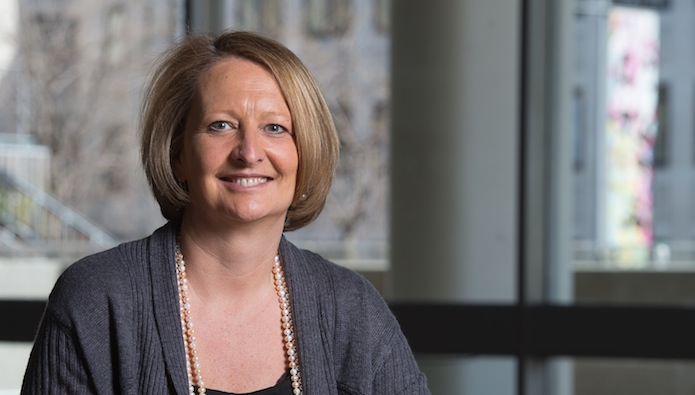In recent weeks we’ve been treated to an array of impressive statistics championing London’s burgeoning technology sector.
Britain’s technology industry is growing faster than Silicon Valley, and will pump £12bn into the economy to create 46,000 jobs by 2024, we have heard. Certainly there is little doubt that since the inception of Tech City UK, Britain’s digital sector has blossomed into a truly global powerhouse.
But amid the recent wave of enthusiasm for London’s tech sector, one arguably far more powerful statistic seemingly flew under the radar.
Read Tech City News’ coverage of Women in Tech here
BCS, the chartered institute for IT and E-skills, indicated in their new Women in IT scorecard that women account for just 16% of the UK IT workforce. Furthermore, the report showed that girls accounted for just 13% of entries for computer science GCSEs, and for just 6.5% at A-level.
For one of Britain’s most exciting and innovative industries, these figures represent a concerning situation that requires the industry’s attention.
Why? Because whilst the UK tech industry may be venturing into exciting new territory, by largely marginalising women it can’t claim to be any more innovative or cutting edge than the majority of other industries in which women are underrepresented.
Furthermore, the tangible economic benefits of employing a more diverse workforce are there to see: research shows that digital companies with a stronger female presence on their management team have a 34% bigger return on investment, for example.
So to tackle female underrepresentation in our tech sector, a three-pronged approach is required.
Education
Firstly, we must ensure that young women are fully grounded in technology and aware of the opportunities in the digital sphere from a young age.
Thankfully, progress in tech education is being made – from this autumn, England will be the first country in the world to teach computer programming in primary and secondary schools.
As part of the national curriculum, students aged five to 16 will be able to code, design and understand algorithms, and this is to be strongly commended.
Challenging stereotypes
Secondly, we must counter the all too typical narrative that technology and other STEM (Science, Technology, Engineering and Maths) careers are ‘not feminine’, ‘geeky’ and involve sitting behind a screen crunching numbers all day.
The truth is a whole array of exciting careers are underpinned by technology, from military defence to architecture, from marketing to medical research.
The importance of tech education is also the reason I am Chair of Your Life, a campaign launched by George Osborne which aims to show how science and maths can lead to exciting and stimulating careers.
Role models
Thirdly, we must provide young women with more confidence in the digital sphere.
Technology is one of the most competitive sectors to succeed in, and as a result, many young women have ruled themselves out of technology careers before they have even left school – almost half of those taking Physics GCSE are girls, but only 2% of girls taking A levels take Physics, for example.
To ensure young women stay committed to technology careers, we must showcase the host of female technology role models who have succeeded in the sector.
The likes of Sarah Wood, CEO of global social video marketing platform Unruly, and Kathryn Parsons, Founder of digital training group Decoded, are examples of successful women who have found a niche in the digital sector and capitalised upon it.
This is why, at the What I See project, we have interviewed a number of female leaders in the science industry who have made their mark in British society. By sharing their experiences and the hurdles they have overcome as women, it is my hope that the likes of Dame Athene Donald, Professor of Experimental Physics at the University of Cambridge, can motivate young women to pursue science or technology careers they thought unachievable.
Dilemma
This isn’t to say that for women in the digital sector progress isn’t being achieved; recent research shows that the pay gap between men and women in the digital workplace is only 4%, compared to a national average of 19%, for example.
But women in the sector are faced with a dilemma whereby current female underrepresentation is deterring the next generation from seriously considering careers in this industry.
It is up to both the sector and wider society to not only employ more women but to encourage greater tech education, challenge stereotypes and showcase successful tech women in order to overcome this vicious circle. Only then can British women begin to truly fulfil their tech potential.
Edwina Dunn is director at fan science company Starcount and founder of What I See Project. She chairs the Your Life campaign to raise participation in STEM subjects.

